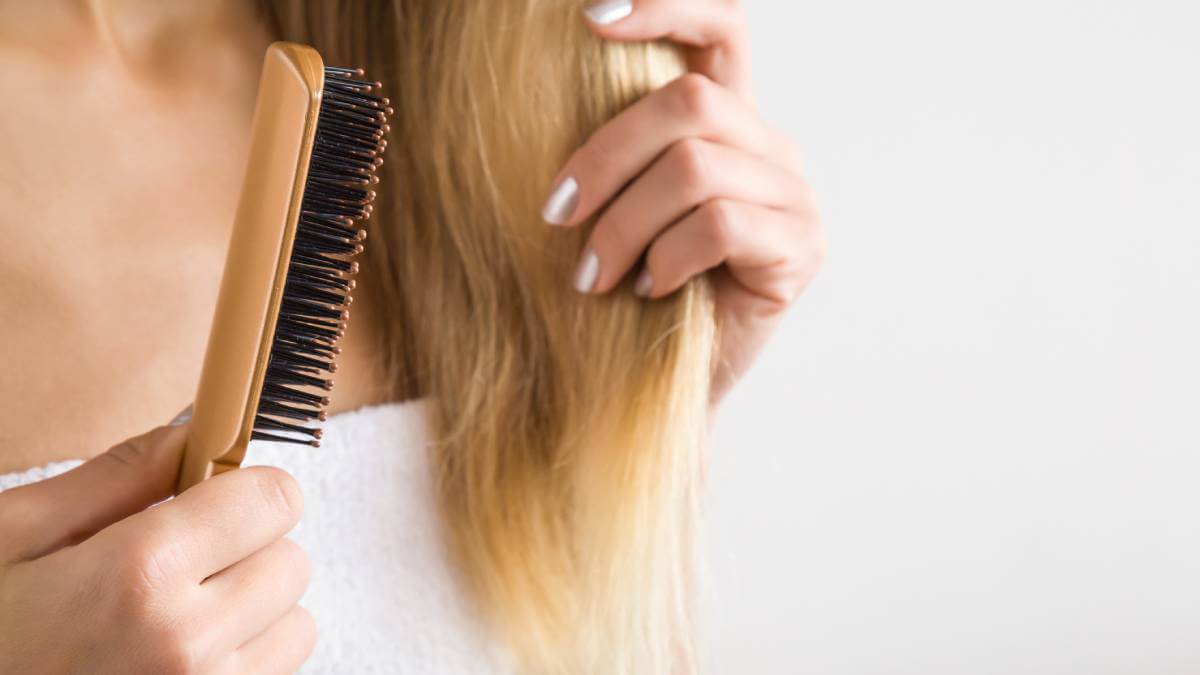When it comes to equipment for taming our hair, people often shell out upwards of $100 on high-tech blow-dryers, straighteners and curling tongs – or nearly $500 in the case of the Dyson Supersonic Hair Dryer – yet many scoff at the idea of buying a hairbrush that costs more than $20.
But by scrimping on that most basic of hair tools, could they be doing a disservice to their locks?
“Poor quality hairbrushes can do enormous damage,” says hairdresser Michael Van Clarke, “both from the friction poor-quality bristles create on the hair shaft, to the snagging, tangling and breakage a poorly-designed brush will cause.”
So, what makes a high-quality hairbrush?
“A machine-made brush can be shaped and filled in minutes, whereas a handmade brush can take up to 500 hours and pass through many craftsman’s hands until it is completed,” says Ben Cosby from Kent Brushes.
The heritage company, founded in 1777, makes boar bristle hairbrushes that range from $16 for a mini version, all the way up to $320 for a satinwood brush in a silk-lined box – and there’s a reason boar is the favoured material.
“Under a microscope, the shaft of the bristle looks like it is made up of tiny fish scales, and it’s this formation that helps stimulate the sebum glands under the skin on our scalp,” Mr Cosby explains. “Sebum is a natural waxy oil that helps keep your scalp moisturised and your hair shiny and full of lustre.
“Man-made nylon brushes cannot imitate the qualities of a natural boar bristle brush, in fact, some brushes that use the cheapest nylon bristles will do more damage than good to the health and condition of your scalp and hair.”
“The type of bristle, the density of bristle, and the variation of bristle length are all critical to how the brush works,” says Mr Van Clarke.
“On my own hair, I use our No. 1 Brush, a name it was given by professional stylists as their first choice brush.”

“Not only does brushing remove tangles, but it also stimulates the capillaries of the scalp, increasing blood circulation and the transport of oxygen and nutrients to the hair follicles,” says colourist and stylist Katie Mulcahy.
“Brushing stimulates these glands and distributes natural oils from the base of the hair along the shaft, making it stronger, glossier, smoother and less dry.
“In addition, we lose an average of 100 hairs per day, so brushing removes all that loose hair and gets rid of product build-up. Brushing is, without a doubt, the easiest way to keep hair healthy.”
It’s not just about quality, though, you must use the right brush type and treat your tresses with care.
“Don’t tear through your locks mindlessly,” Ms Mulcahy says. “Take care when brushing – being too aggressive will only cause damage. Always brush from the bottom and work up.”
How often you brush your hair should also be determined by the length and texture, she says: “Curly hair is different to straight hair. Most of the time, people with curly and highly textured hair only brush their hair when it is time for a shampoo – not every day.”
Is it true that brushing your hair when wet causes damage?
“Most brushes should not be used to brush hair wet, except in sections when blow-drying,” Mr Van Clarke continues.
And if you’ve got extra-long locks? They’ll need extra TLC, he advises.
“If you have very long hair, you start by brushing outwards near to and towards the tips to remove knots and tangles, then work your way up to the roots, still brushing outwards.
“Once you can feel the brush on your scalp, brush through to the tips in turn, clearing any more knots as you go.”
Still not sure a high-end hairbrush is worth the investment? What if we told you that rather than wearing out, it will actually improve over time?
“They get better with wear, so our used versions are highly sought after,” Mr Van Clarke says.
A great brush could last you a lifetime.
How often do you brush your hair? Have you invested in a special hairbrush? Let us know in the comments section below.
Also read: How often should you wash your hair?
– With PA

